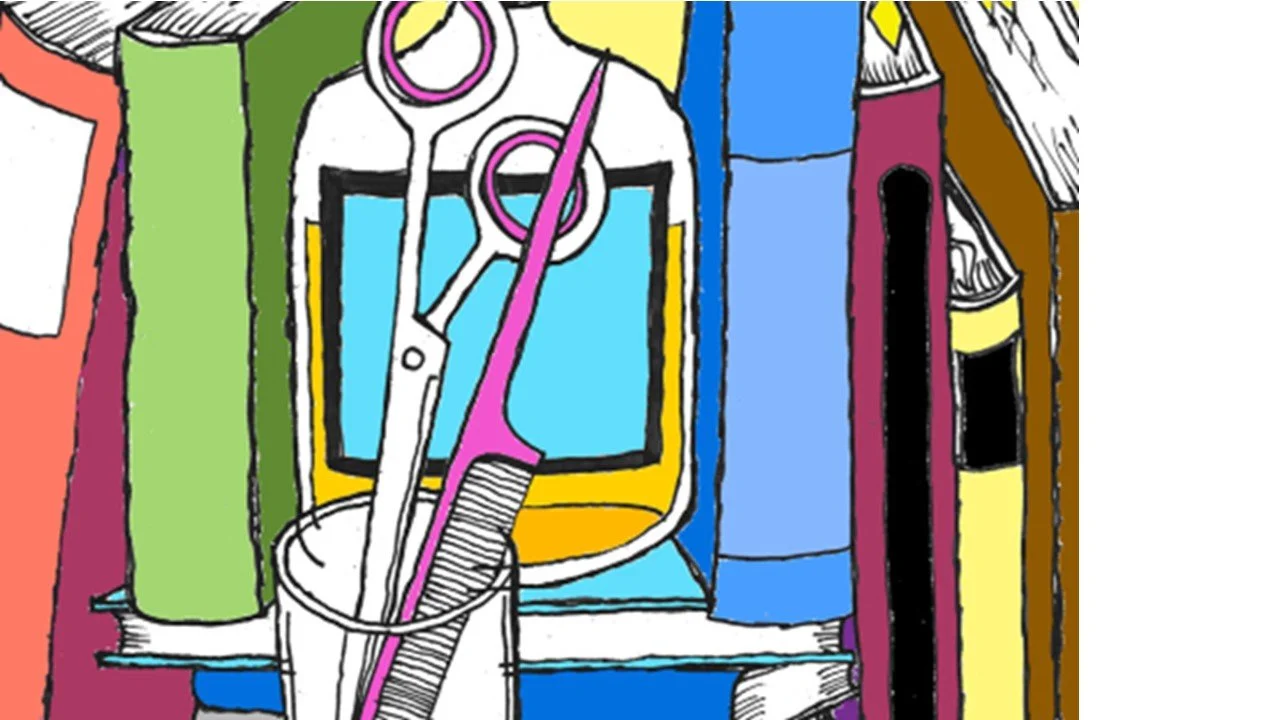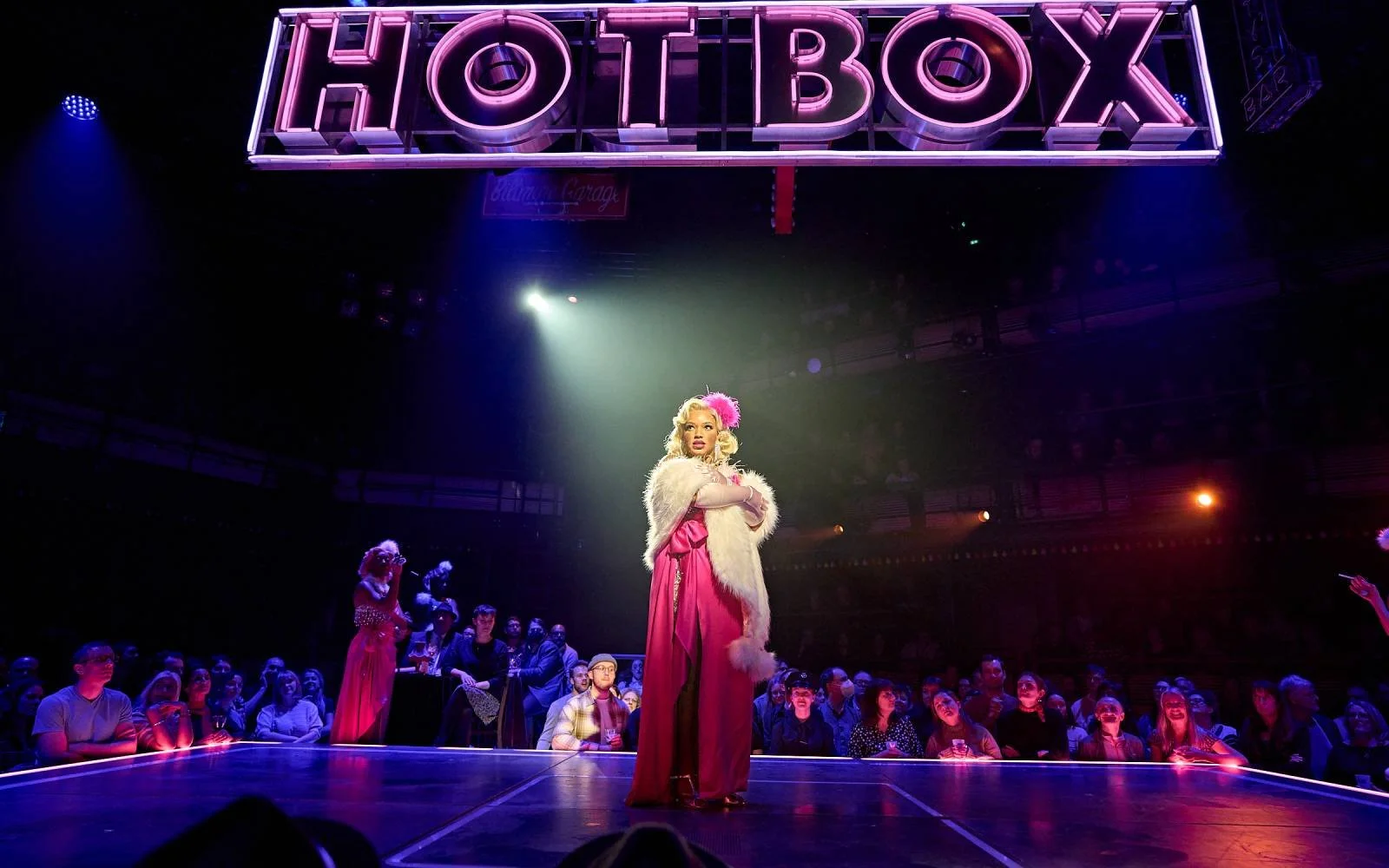EDUCATING RITA
‘We don’t need no education…’ Try telling that to Rita the Scouse hairdresser. Being educated is her abiding wish – it drives her with a burning passion, part desperation. As the play opens, she knocks on a door that will change her life. Like a reverse of the final door slam in Ibsen’s A Doll’s House it is a stunning moment of pure theatre.
Davinia Fisher as Rita, Martin Maynard, Frank.
Seeing Willy Russell’s 43-year-old play at the intimate Corpus Playroom reminded me what a finely constructed piece this is. Russell’s take on the Pygmalion theme still resonates – perhaps even more so, in today’s ever-more divided Britain. Rita the would-be university student is playing truant from her working-class life. She has a husband whose ambition is confined to their having a baby and moving to a nice house; a family and friends who would see her education as class betrayal.
The door she knocks on is that of Frank, a shambling Open University lecturer specialising in Eng Lit and booze. While Rita is on the way up, he is on the downward path to self-destruction – drink, failed marriage, a collapse in any self-belief as a poet. Thus, with that opening knock as Rita enters Frank’s tutorial study, we are set for a battle of wills and a painfully honest dissection of two contrasting lives.
This two-hander packed with Russell’s trademark humour but also searing insights into the English class system is made or broken on the quality of the acting and the sensitivity of the direction. Happily, with this Combined Actors of Cambridge production, we knew from that first breezy entrance of nervous motor-mouth Rita into Frank’s shambolic world, we were in safe hands. Davinia Fisher was pitch perfect as Rita – the young Liverpudlian hairdresser who is tortured by knowing what she doesn’t know about art, literature, culture. When Frank asks her, does she know Yeates, she replies, ‘The wine lodge?’ This is funny but there is nothing funny about Rita’s thirst for knowledge. Fisher captures Rita’s burning ambition to throw off her life of crap schooling and start again with wonderful inner tension. You would be hard pushed to find a better reading of this multi-layered character.
Martin Maynard played Frank (the part made famous by Michael Caine in the movie version) with equal strength in depth. As Frank his eyes may once have burned with ambition, but that flame is in its final flicker. Or is it?
Maynard’s sensitive portrayal totally convinces and his descent into drunken self-pity is almost too painful to watch. Yet, most importantly is that spark of energy between Rita and Frank. The two actors here caught that perfectly. They make us laugh yes, but also encourage us to care deeply about these two opposite lives.
The other great strength of this fine production was the attention to detail and the fluid yet unobtrusive direction by Gloria Milne. The one set is suitably stuffed with Frank’s stuff – piles of books, hidden drinks bottles, work desks stacked high with student essays, a 1970s telephone and a transistor radio that provides a redolent soundtrack to the world of Thatcher, plummy BBC voices and pop tunes of the era. Rita’s costumes change with each scene change and subtly mark her advance into her newly educated, middle-class world. Given the tiny, cluttered stage, and the peculiar two-sided nature of the venue, the director worked miracles to keep the pace flowing and use every inch of acting space whilst keeping the full-house audience wherever they sat fully engaged. It was an education in how to put on a classic play. And yes, it never stops, we all need that education.








